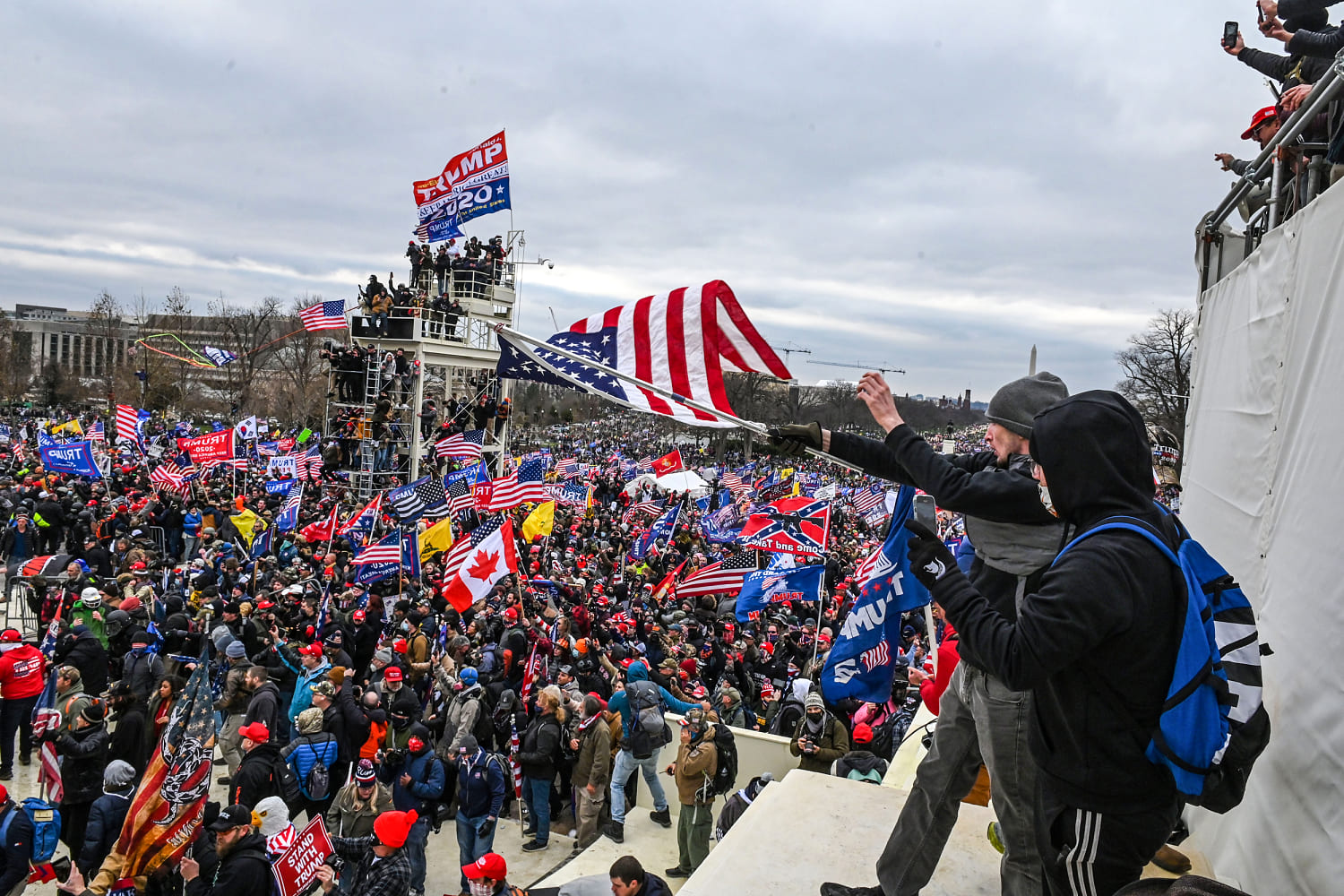
As millions of Americans greet the start of the second Trump presidency with dread, even panic, a group of people are hoping their lives will be transformed for the better. Many insurrectionists who stormed the Capitol four years ago and are still serving time for their crimes believe Donald Trump will deliver them to freedom. After all, what kind of country would it be if you could end up in prison for simply trying to overthrow the government?
This hope for deliverance is undoubtedly felt by most, if not all, of the more than 1,500 insurrectionists who have been charged with crimes in connection with the events of January 6, 2021, more than 1,250 of whom have pleaded guilty or have been found guilty. at trial. And perhaps no one values Trump’s pardon more than Enrique Tarrio, the former leader of the Proud Boys, who helped plan and coordinate the insurrection.
There is little reason to believe that Trump thinks anyone involved in the insurrection did anything wrong.
In 2023, Tarrio was sentenced to the longest sentence of all participants, 22 years in prison. His lawyer formally asked Trump for forgiveness on Monday, writing that Tarrio is “a proud American who believes in true conservative values” and “a young man with a bright future ahead of him.”
Trump has repeatedly said he intends to pardon the insurrectionists; what we don’t know yet is how far it will go. Will he only pardon people accused of non-violent crimes? Or will he grant a blanket pardon to all, as some of his supporters are demanding?
Not even all Republicans are willing to go that far. But a blanket pardon would be the logical conclusion of Trump’s four years of attempts to rewrite the history of that horrible day. His strategy in this regard was as simple as it was effective. He simply said, again and again, that the insurrection was not a crime or a coup d’état but something just and courageous. It was “a day of love” and the violent thugs who executed him were patriots and heroes, those who are now imprisoned for their crimes and who are in reality “political prisoners”. During the campaign, Trump proclaimed that one of his first acts if he won would be to free the January 6 “hostages.” His rallies began with a recording of imprisoned insurrectionists singing “The Star-Spangled Banner.” Through this repetition, he made it clear to all Republican officials and media personalities that they too had to repeat the fantastic version of that day, which many conscientiously did.
Soon the Republican masses believed it – after all, it was what the public figures they admired and trusted were telling them. Although not all of them accepted the most deranged versions of the right-wing narrative – that the coup was a set-up by the FBI, a conspiracy theory sometimes touted by Tucker Carlson and Kash Patel, the choice of Trump to now lead this same agency – at least they came to the conclusion that it was nothing serious. According to a recent CBS News poll, 72 percent of Republicans now say they would approve of Trump pardoning the insurrectionists.
According to the Justice Department, 13 leaders of the Proud Boys and Oath Keepers were charged with seditious conspiracy following the attempted coup. Another 379 people were charged with criminal assault. The rest – more than 1,000 – were charged with crimes that amounted to participation in the riot, acts including unlawful entry and civil unrest.
There is precedent in Trump’s past for blanket pardons.
Trump could decide to pardon only those convicted of nonviolent offenses. But that wouldn’t really provide the exoneration — not just for them, but also for Trump himself — that he actually claimed. If Trump leaves out violent criminals in his pardons, it would be an acknowledgment that there has, in fact, been an extraordinary amount of violence. On the other hand, a general pardon would allow the story to wrap up the way he would prefer: the election was stolen from him, then his supporters protested, then they were persecuted for exercising their constitutional rights, and finally he released them.
So will he pardon Tarrio, and with him Stewart Rhodes, the leader of the Oath Keepers, sentenced to 18 years in prison after being found guilty of seditious conspiracy for his role in orchestrating the insurrection? Will he do the same for Daniel “DJ” Rodriguez, who was sentenced to 12 years in prison for assaulting police officers with a fire extinguisher and a wooden pole and pushing a stun gun into the neck of a Capitol police officer ? What about Peter Schwartz, who attacked police officers with a chair and pepper spray? Or Thomas Webster, who raised a flagpole during the attack and ripped a gas mask from an officer’s face?
There is little reason to believe that Trump thinks anyone those who participated in the insurrection did something wrong and should face the consequences; they were there to serve his cause, so they had to be above reproach. And there is precedent for Trump’s record on blanket pardons: As he was leaving office four years ago, he pardoned or commuted the sentences of a boatload of thugs who had committed crimes either in his name, be in his service.
More importantly, blanket pardons would mean the culmination of Trump’s attempt to turn the insurrection from a failure to a success. In fact, we could already consider it that way. Trump and his cronies attempted to overturn an election through various criminal means, and they ultimately got what they wanted, even if it took four years. Trump will now return triumphantly to the White House. All that remains is to erase the consequences for those who tried to place him there by violence.
nbcnews
